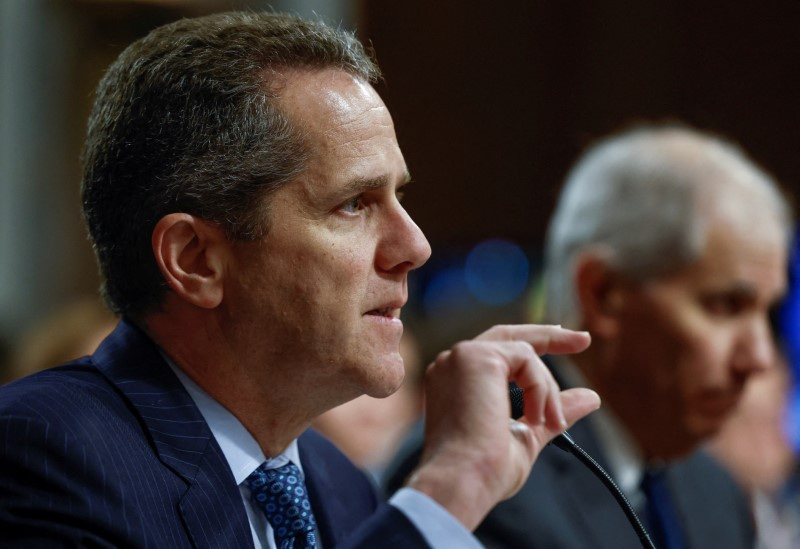By Pete Schroeder
WASHINGTON (Reuters) -The Federal Reserve's top regulatory official said on Friday the central bank is "a long way" from any decision on whether it would issue its own digital currency, and added it would not do so without official support in Washington.
Fed Vice Chair for Supervision Michael Barr said while officials are investigating a central bank digital currency (CBDC), the Fed was far from any decision. He added it would only proceed with one with "clear support" from the president and authorizing legislation from Congress.
"In my view, as both the issuer of U.S. currency and an operator in the payments system, the Federal Reserve must understand these developments and the tradeoffs [CBDCs] introduce," said Barr in prepared remarks to a fintech conference in Philadelphia. "Of course, investigation and research are very different from decision-making about next steps in terms of payments system development, and we are a long way from that."
Barr's comments echo those of Fed Chair Jerome Powell, who also has said the Fed would not move to issue a digital currency without explicit authorization from Congress. The notion of such a currency has been met with skepticism by the banking industry and some members of Congress, wary of granting so much power to the Fed.
On the matter of digital currencies issued outside official agencies, Barr said he remained "deeply concerned" about so-called stablecoins gaining a strong foothold in the financial system without significant oversight.
Stablecoins, which are digital assets whose value is meant to be pegged to a currency like the U.S. dollar, have attracted the attention of regulators and lawmakers, who say the product lacks a sufficient regulatory framework and oversight.
Barr said banks interested in dealing with such assets must clear the activity with their supervisors, who will check to ensure the firms have sufficient risk management in place to handle these newer products.
But he cautioned that the Fed's policy on this only applies to banks it directly supervises, leaving space for banks subject to monitoring by other government agencies to go further.
"If nonfederally regulated stablecoins were to become a widespread means of payment and store of value, they could pose significant risks to financial stability, monetary policy, and the U.S. payments system. It is important to get the legislative and regulatory framework right before significant risks emerge," he said.
